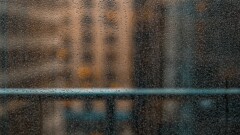Though prayer is instictive, it is also difficult labor. David M’Intyre makes and explains this point in his book The Hidden Life of Prayer:
Instinctive as is our dependence upon God, no duty is more earnestly impressed upon us in Scripture than the duty of continual communion with Him. The main reason for this unceasing insistence is the arduousness of prayer. In its nature it is a laborious undertaking, and in our endeavor to maintain the spirit of prayer we are called to wrestle against principalities and powers of darkness.
“Dear Christian reader,” says Jacob Boehme, “to pray aright is right earnest work.” Prayer is the most sublime energy of which the spirit of man is capable. It is in one aspect glory and blessedness; in another, it is toil and travail, battle and agony. Uplifted hands grow tremulous long before the field is won; straining sinews and panting breath proclaim the exhaustion of the “heavenly footman.” The weight that falls upon an aching heart fills the brow with anguish, even when the midnight air is chill. Prayer is the uplift of the earth-bound soul into the heaven, the entrance of the purified spirit into the holiest; the rending of the luminous veil that shuts in, as behind curtains, the glory of God. It is the vision of things unseen; the recognition of the mind of the Spirit; the effort to frame words which man may not utter. A man that truly prays one prayer,” says Bunyan, “shall after that never be able to express with his mouth or pen the unutterable desires, sense, affection, and longing that went to God in that prayer.” The saints of the Jewish Church had a princely energy in intercession: “Battering the gates of heaven with storms of prayer,” they took the kingdom of heaven by violence. The first Christians proved in the wilderness, in the dungeon, in the arena, and at the stake the truth of their Master’s words, “He shall have whatsoever he saith.” Their souls ascended to God in supplication as the flame of the altar mounts heavenward. The Talmudists affirm that in the divine life four things call for fortitude; of these prayer is one. One who met Tersteegen at Kronenberg remarked, “It seemed to me as if he had gone straight into heaven, and had lost himself in God; but often when he had done praying he was as white as the wall.” David Brainerd notes that on one occasion, when he found his soul “exceedingly enlarged” in supplication, he was “in such anguish, and pleaded with so much earnestness and importunity,” that when he rose from his knees he felt “extremely weak and overcome.” “I could scarcely walk straight,” he goes on to say, “my joints were loosed, the sweat ran down my face and body, and nature seemed as if it would dissolve.” A living writer has reminded us of John Foster, who used to spend long nights in his chapel, absorbed in spiritual exercises, pacing to and fro in the disquietude of his spirit, until his restless feet had worn a little track in the aisle.
Another explanation of the arduousness of prayer lies in the fact that we are spiritually hindered: there is “the noise of archers in the places of drawing water.” St. Paul assures us that we shall have to maintain our prayer energy “against the rulers of the darkness of this world, against spiritual wickedness in high places.” Dr. Andrew Bonar used to say that, as the King of Syria commanded his captains to fight neither with small nor great, but only with the King of Israel, so the prince of the power of the air seems to bend all the force of his attack against the spirit of prayer. If he should prove victorious there, he has won the day. Sometimes we are conscious of a satanic impulse directed immediately against the life of prayer in our souls; sometimes we are led into “dry” and wilderness-experiences, and the face of God grows dark above us; sometimes, when we strive most earnestly to bring every thought and imagination under obedience to Christ, we seem to be given over to disorder and unrest; sometimes the inbred slothfulness of our nature lends itself to the evil one as an instrument by which he may turn our minds back from the exercise of prayer. Because of all these things, therefore, we must be diligent and resolved, watching as a sentry who remembers that the lives of men are lying at the hazard of his wakefulness, resourcefulness, and courage. “And what I say unto you,” said the Lord to His disciples, “I say unto all, Watch! “









